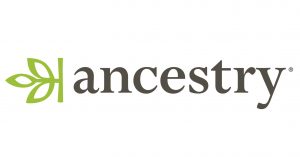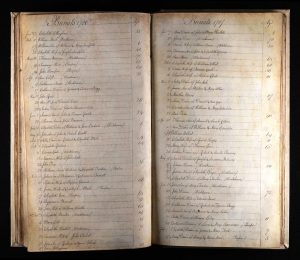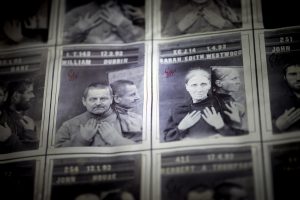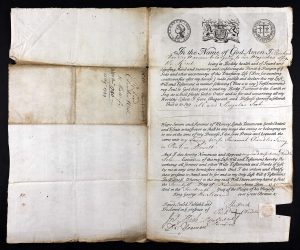The Ancestry website is usually available free of charge at Dorset History Centre and in Dorset Libraries. During the current situation, when these centres are closed, Dorset Libraries are offering free access to Ancestry to anyone with a Dorset Library card. Other library services often offer this, and you may wish to check for services local to your area. Ancestry is also available by subscription from a home computer.

There are a great many of our Dorset documents that can be found on Ancestry, including Parish Registers, Prison records and Wills. In this blog we will explain a little about some of the main genealogical records that are on there, and offer some tips on how to make the most out of your searches!
—
Parish Records

Parish registers are records of baptisms, marriages and burials taken by the Church from as early as the 1500’s. The majority of Dorset’s surviving Parish registers can be found on Ancestry. These registers are extremely helpful if you are trying to trace your family history back further than a few generations as official registration of births, marriages and deaths did not begin in England until 1837.
Prison Records

On Ancestry you can find several records relating to criminals and prisoners in Dorset. For example, you can search the Dorset Convict Transportation records from 1724-1791, these contain documents relating to convicts from Dorset who were sentenced to transportation. You can also find out about Dorchester Prison inmates in the Dorchester Prison Admission and Discharge Registers from 1782-1901. This collection contains prison registers, a book containing the description of prisoner’s and a photo album of some of the prisoners between 1887 and 1901.
Wills and Probates

You can search for Dorset Wills and Probates from 1565-1858 on Ancestry. Wills can hold some interesting information such as where the person wished to be buried, an inventory of the person’s goods and a valuation of their personal property. The names of beneficiaries and executives can also provide us with exciting evidence of family relationships.
It is important to remember that not many people made wills at this time, and those who did tended to be the wealthy. Also, when searching for a will remember that the date a will was recorded was the date it was proved and not when it was first written or the date of death.
—
If you are interested in viewing these records, or any of the Dorset History Centre records that are on Ancestry you can find them by searching for ‘Dorset’ in the Title section of the Card Catalogue.
Ancestry is a wonderful resource, but sometimes it can be difficult to find the information that you are looking for, so here are some of our top tips for making the most of your searches…
Use the Card Catalogue
If you are searching for a specific record use the Card Catalogue. This can be found under the search tab. This allows you to search in one set of records, for example you can just search in `Dorset, Church of England Baptisms, Marriages and Burials, 1538-1812` This also brings up a browse option on the right-hand side of the search box. To find the sets of records that have been made available by the Dorset History Centre search using the title Dorset.
Save or make a note of everything!
It isn’t always easy to find a document again or remember where you found a piece of information. Click on the green save tab and then select Send Image Home to e-mail the page that you are viewing to yourself.
Sometimes less is more…
Records can be transcribed incorrectly, information can be mis-remembered and names can be written wrong so sometimes putting in too much information can lead to results not displaying because a mistake has been made.
Start with the basic details – name, birth date and county. If this produces too many results you can add more.
Common Surnames!
If your ancestor has a very common surname such as ‘Smith’ or ‘Brown’ you may find it difficult to narrow down the person you’re looking for. In this case putting in extra information is vital.
If you know their profession this can be added as a keyword. Use the options to add the names of any known family members. If you find a sibling with a particularly unusual first name you might find it easier to trace them rather than your ancestor.
If you are still getting too many possibilities try ticking the exact box on information that you are sure about.
Misspellings
Names are often spelt in several different ways on different documents so it is sometimes useful to use a star symbol (*) instead of some of the letters. For example the surname ‘Branden’ might also be spelt ‘Brandon’ or even ‘Brandern’. Typing in ‘Brand*n’ will bring up all of these names in your results.
You can even use more than one ‘*’. The surname ‘Mintern’ is spelt in many different ways including ‘Mentern’, ‘Minton’ or ‘Minterne’ so you could use ‘M*nt*n*’ to include all possibilities in your search.
Never dismiss a record if all other information is right, but the name is spelt very differently. We have come across a person christened ‘Sarah Viner’, but named ‘Lavinia’ in all other records!
Finding siblings…
If you are searching baptism records and wish to find out if your ancestor had any siblings put in only the surname and then use the extra options to put in the parent’s names.
Online Family Tree
Consider using the family tree maker on Ancestry to record your findings. This is available without subscription, although you will need to provide an email address and create a password.
- To find this scroll down to the bottom of the Ancestry home page and click on site map.
- Select Family Tree.
- Click on start a new tree, and away you go!
Remember what’s not on there!
Ancestry is a very good starting point for genealogical research, but it’s important to remember that not everything is on there! You might find further answers in other sources as well. You can check our online catalogue and search for the names of people or places to see what we hold. You can also check our local studies library to see if any books might have been written about the person or people you are looking for. Other sources, such as Trade Directories or even telephone books, hold useful information and can sometimes help to trace people’s movements where the censuses cannot.
—
We hope these tips are useful to you when you are using Ancestry! As always, staff at DHC are available to answer any queries, or provide advice if you are stuck. You can email us – archives@dorsetcouncil.gov.uk, or telephone – 01305 250550.


Thank you these are very helpful tips especially the use of the card catalogue.
Thank-you Barbara, we’re glad you’ve found them useful!